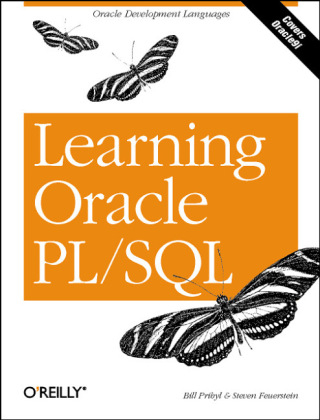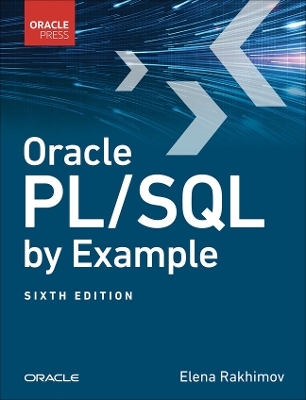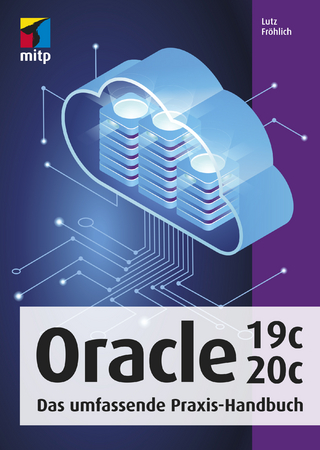
Learning Oracle PL/SQL
O'Reilly Media (Verlag)
978-0-596-00180-3 (ISBN)
Oracle development tools come and go, but one of the few constants in the Oracle database environment is the PL/SQL programming language, which has been around for more than a decade. As Oracle's premier tool for building store procedures, PL/SQL supplements the standard database language, SQL, with the features needed to build real-world applications. This volume is suitable for newcomers to the language. It begins with a discussion of what PL/SQL is and what it's good for, and then presents language features, one at a time. A consistent and understandable example - the development of a library's electronic catalogue system - runs through the chapters.
Steven Feuerstein is considered one of the world's leading experts on the Oracle PL/SQL language. He is the author or coauthor of six books on PL/SQL, including the now-classic Oracle PL/SQL Programming and Oracle PL/SQL Best Practices, all from O'Reilly & Associates. Steven is a Senior Technology Advisor with Quest Software, has been developing software since 1980, and worked for Oracle Corporation from 1987 to 1992. Steven is president of the Board of Directors of the Crossroads Fund, which makes grants to Chicagoland organizations working for social, racial and economic justice. You can reach Steven at steven@stevenfeuerstein.com.
Part 1 PL/SQL - what, when and where: what is PL/SQL?; why use PL/SQL?; what you need to get started with PL/SQL. Part 2 Fundamentals: PL/lingo; running your first PL/SQL program; introduction to program structure; variables; common operators; conditional logic; executing in circles - loop statements; code formatting - requirements and guidelines; some advanced fundamentals. Part 3 Let's code!: some backrgound on the example; a first programming exercise; retrieving a book count with a function; make your code resilient; using PL/SQL packages to organize code; going to the next level; now what?. Part 4 Go web, young man: introduction to HTML; using PL/SQL to create web pages; what else?. Part 5 Fetch!: what's the big deal?; a simple-minded approach to retrieving one row; retrieving more than one row using a cursor; presenting query results via a web page; building a web-based search page using dynamic SQL; advanced data retrieval topics. Part 6 Keeping house: organize your code; use tools to write code effectively. Part 7 Security - keep the bad guys out: Oracle security primer; organizing accounts to improve security; analyzing the library system's requirements; keeping a trail of database changes; special security topics for PL/SQL developers. Part 8 Communicating with the outside world: sending Internet e-mail from PL/SQL; using the mail sender in the library system; receiving e-mail inside the database; fetching data from a remote web site; integration with other languages. Part 9 Intermediate topics and other diversions: riding the software lifecycle; lists o' stuff (collections) in PL/SQL; exception-handling packages; transaction control; the PL/SQL compiler; managing patron and librarian privileges; still more PL/SQL features. Part 10 "Making good" of database programming: the evidence; the problem; answering the objections; what to do.
| Erscheint lt. Verlag | 25.12.2001 |
|---|---|
| Reihe/Serie | Learning Ser. |
| Verlagsort | Sebastopol |
| Sprache | englisch |
| Einbandart | kartoniert |
| Themenwelt | Informatik ► Datenbanken ► Oracle |
| Mathematik / Informatik ► Informatik ► Programmiersprachen / -werkzeuge | |
| Mathematik / Informatik ► Informatik ► Software Entwicklung | |
| ISBN-10 | 0-596-00180-0 / 0596001800 |
| ISBN-13 | 978-0-596-00180-3 / 9780596001803 |
| Zustand | Neuware |
| Haben Sie eine Frage zum Produkt? |
aus dem Bereich


